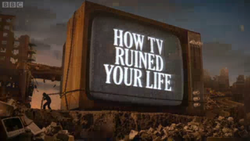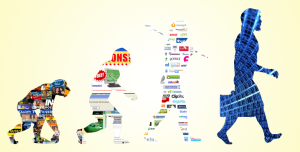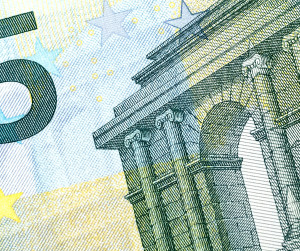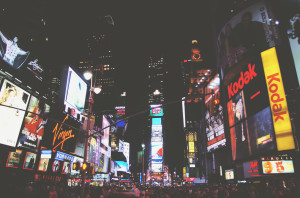Believe it or not, title stolen from a band!
How we talk and think about emotions is an offense to feelings. We say we’re; happy, surprised, scared, angry, sad, disgusted, or whatever, as if it’s that simple. As if we only ever feel one thing at a time. That’s the emotional equivalent of a child’s stick figure portrait. Emotions can’t be summed up neatly under just one title. And we rarely have much success defining, explaining, or predicting the little fuckers, so we usually settle for rationalizing them.
Scientists assure us that, for the most part, we all feel the same emotions, though you’d never know it by all the different ways we try (not) to express them. When we say we’re mad it often means we’re lashing out because we’re hurt and/or feel helpless. And when we’re jealous it might actually be we’re scared and/or envious. Only in textbooks and fantasies are emotions clean and simple. Most psychologists agree that jealousy is when we’re afraid of losing something to someone else. Envy, on the other hand, is when we covet something someone else has. When the rubbers meets the road though, things aren’t so simple. When we fear someone being able to take what’s ours, it’s because of our insecurity. We’re worried that this person is better than us. Because they have qualities we envy. In real life emotions are dirty, and complicated. And when you take into consideration cultural norms always telling us how we’re supposed to feel, even when it contradicts our nature, well, that’s when the corn-eyed brown trout hits the fan.
So, when we’re raised in a society that tells us that everything’s zero-sum, and we’re entitled to it all, and we see others having what should be ours, because we deserve it, we’re owed it – is that jealousy or envy?
Thanks to one of the most influential motherfuckers, that no-one’s ever heard of, in the second half of the 20th century advertising switched from telling us about products, to preying on our souls. Marketing began using our unconscious motivations, the very things that make us human, against us. Ads started subtly linking the schlock they were hocking with glamorous ideas of what we might become if we use them. Advertisers were no longer selling things, they were selling the lifestyles those products hinted they could bring. Straight up Madmen shit.
I like to believe that old adage about knowledge being power, so the most frustrating thing about marketing for me is that knowing we’re being influenced by the media doesn’t help much. Being conscious of how it’s trying to emotionally manipulate our fears and longings doesn’t make us immune to it. For better or worse emotions are far stronger than logic. And marketing and propaganda can hack into those survival instincts. “You want to mate, right? To be loved? You don’t want to be shunned, do you?” Advertisers’ve learned that if it grabs us by our old ape brains it can squeeze out just about any response it wants.
Until recently (when we fucked it up) there was a sound evolutionary benefit to learning by example. We saw someone close to us become a success at hunting, building a hut, or some such thing, and we learned to follow their lead and maybe succeed ourselves. Watching others fail taught us what to avoid or improve. Emotions too played (and still play) a big part in learning; joy, fear, pain… and whatever the others are, add weight and importance to those lessons, and make them stand out in our memories like a RuPaul at a Trump rally. Our survival depended on paying attention to the things that were in front of us making us scared, mad, horny, or whatever. That’s the way its been since the mold set for our brains 200,000 years ago. And that worked for a while, we didn’t even feel the need to start writing things down for 193,000 years after that. It wasn’t until about 50 ago that the media gained the knowledge that it could chain us to electronic devices and sell us clutter through them. That’s why we have the most exciting commercials for the most boring shit, and even the news tries to scare the brownies out of us to get higher ratings. If knowledge is power, I guess that other old adage is also true, about power corrupting.
Some theories are so common sense I don’t know why people bother giving them names. Cultivation Theory says, the more time we spend absorbing information from learn-by-(bad)-example media-boxes, the more we start to think real life’s like what we’ve been watching. TV cultivates viewers’ perceptions. And it’s a great babysitter for parents who don’t want to lose their gaddamn minds, but it’s also a way a lot of kids get socialized to the tribe. A tribe that doesn’t really exist. Hell, even the average adult (American), who spends 5 hours a day sucking up the glowing waste products from their TV terminals, can’t help but be taught misinformation about the world. The more violence we watch, the more we subconsciously feel those one-in-a-zillion things might happen to us. Even though statistics show otherwise. Believing those stats might not cure our anxiety though – because emotions are stronger than logic. Likewise, the more shows we watch about the more affluent, the more we think that everyone has it better than us. And of course here too, knowing logically, that that’s not reality probably won’t change our feelings.
TV and movies are an escape from reality, fulfilling our fantasies about the way life should be. It’s its job to make everything look as good as possible. People are beautiful, thin, and in wardrobes more expensive than most cars I’ve owned. Always living in homes few in real life will ever be able to afford. The characters lives also have to be way more interesting than ours. I mean, who wants to watch a bunch of poor folks who don’t have enough time, energy, or money to have any adventures. They don’t make TV about people who sit around watching TV all the time. Logistically, part of the reason for the ever-present ginormous city-apartments and suburban-houses is to fit more characters, action, and still have room for cameras to move. And of course, even the shows that call themselves reality TV aren’t immune. HGTV and Food Network are great for showing us what we could do to make our dinners, our homes, and the smoldering ruins of our lives beautiful – if we had nothing but time, money, and energy.
Thinking that what we see on our screens is how things are supposed to be, everyone posts only the highlights of their lives to (pseudo)social media. It’s like a competition where everyone’s trying to make their lives look like commercials for perfection. Continually seeing all this shit adds up and makes us feel poor, and poorly about ourselves. Like we’re falling behind or drowning – even when we have everything we need, and are richer than 95% of the world.
Be careful the jobs you take. It’s unavoidable that what you do 5 out of 7 days every week will effect who you are, in a lot of surprising ways. The same is true for nations as a whole. Just a couple of decades after the reinventing of advertising our country began the switch from manufacturing to a customer-service economy. We stopped making things and instead import them to sell back and forth to each other. It works, as long as we’re constantly stimulating the economy. And this is where propaganda comes in. The economic shift was marked by the 1980’s veneration of currency and its culture of conspicuous consumption. The airwaves were flooded with shows like; Silver Spoons, Dallas, Matt Houston, Richie Rich, Dynasty, Mr. Belvedere, and of course the first show that actually allowed us to look through the keyhole into the opulently wealthy, Lifestyles of the Rich and Famous.
As only George Carlin could put it, the zeitgeist was, “whiny, narcissistic, self-indulgent people with a simple philosophy: ‘GIMME IT, IT’S MINE!’ ‘GIMME THAT, IT’S MINE!’ These people were given everything. Everything was handed to them. And they took it all: sex, drugs, and… as for the rock and roll, they sold that for television commercials a long time ago… so they could buy pasta machines and stairmasters and soybean futures… It’s in their slogans, it’s in their rhetoric: ‘No pain, no gain.’ ‘Just do it.’ ‘Life is short, play hard.’ ‘Shit happens, Deal with it.’ ‘Get a life.’ These people went from ‘do your own thing’ to ‘just say No’. They went from ‘love is all you need’ to ‘whoever winds up with the most toys wins’… And the worst of it is, the rest of us have to watch these commercials…“
And thank goodness for that, because without them to pave the way, we might never’ve had MTV’s Cribs, Real Housewives, Jersey Shore, or the Kardashians. Or any other of the talentless wealthy we get to watch live their dream-lives: getting richer and famouser by just being themselves. They stole our dream job and we despise them for it with a hate that’s primeval. Studies show that even our primate cousins get pissed when they see others getting better rewards for the same work or less. This outraged sense of (un)fairness seems to be older than humanity itself.
As adults we still pay the electric-babysitter to keep us out of trouble, only now it’s in our pockets too, and literally never out of reach. The other realities it makes look so attractive and attainable seem like the ones that should be ours. After all, we’re entitled to the American Dream of moving up, right? Or we would’ve been if we’d been born rich, or had spent our lives making the right connections. But hey, at least we can still spend like we’re rich. And as long as we always have the excited high of that next new toy, we’ll never have to feel disappointed with our station in life, or bitter about our debt. Until our house of (credit) cards collapses. Again.
Everything’s a balancing act. The constant struggle between wanting more and being satisfied with what we have. Between continually improving or being content. At different times we need both to varying degrees, but our culture only feeds one, so it grows and grows, and becomes like the wolf of darkness and despair from the old parable.






